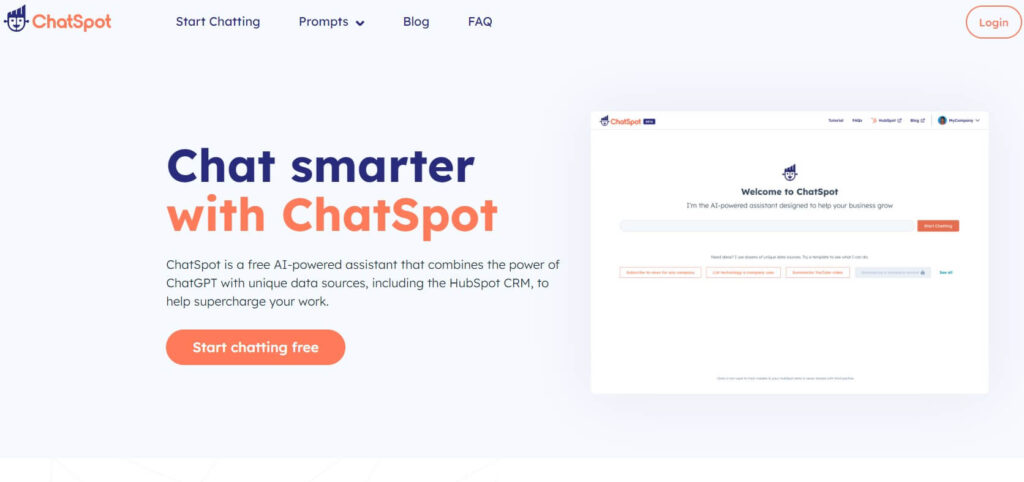A mainstay of sales techniques, cold calling has changed dramatically throughout the years. Salespeople used to have to call numbers from long lists in an effort to start a conversation that might result in a sale. With success rates infamously low—often less than 2%—this approach, which peaked in popularity in the late 20th century, was as exhausting as it was ineffective. Sales staffs would put in hours on the phone, dealing with repeated rejections and the physical strain of repetitive work.
When digital technologies first appeared, the scene started to change. Even when CRM systems and auto-dialers increased productivity by the early 2000s, the fundamental problems of cold calling—emotional exhaustion and scalability—remain unsolved. Artificial intelligence didn’t start to gain notice until the middle of the 2010s, when it promised to completely change the way cold calling was done.
AI cold calling is now changing the sales industry in ways that were unthinkable a few years ago. Using cutting-edge AI technology, these systems can mimic complex human dialogues, successfully attract prospective clients, and learn from every encounter to get better over time. Large data sets analyzed and used by AI enable customized calls based on the recipient’s history and past interactions, greatly raising the likelihood of a successful conversation.
Contrast with traditional human cold calling
Several clear benefits set AI cold calling apart from conventional human cold calling. With hundreds to thousands of calls possible at once, it offers unmatched scalability that much outperforms human callers. In a short amount of time, this greatly raises the number of possible leads contacted. AI also guarantees uniformity and high calibre in every call by keeping the same tone, tempo, and information quality, so guaranteeing a consistently professional image of the business.
AI systems are excellent data handlers as well; during calls, they can rapidly process and evaluate enormous volumes of data. They customize the conversation and increase the chance of a fruitful result by instantly accessing historical data, prior contacts, and more about a prospect. Economically speaking, AI lowers the requirement for a sizable staff of human callers, which lowers labour costs as well as those related to training and attrition.
Artificial intelligence can also work nonstop, without pauses, vacations, or downtimes, providing flexibility that human operations just cannot match. Every call is answered with the same degree of zeal and professionalism because AI does not suffer from exhaustion, annoyance, or other emotional states that could degrade the quality of conversation.
Though AI cold calling offers numerous benefits, it’s crucial to remember that, especially in really difficult situations, it might not yet be able to match the deeper degree of empathy and sophisticated problem-solving abilities that skilled human callers provide. These differences should close as AI technology develops, though, and AI will become a more useful tool in cold calling tactics overall.
How AI Cold Calling Works
Technology Behind AI Cold Calling
Natural Language Processing (NLP), a technology that lets computers comprehend and interpret human language, is at the heart of AI cold phoning. AI systems may understand not only the words but also the meaning behind them when NLP algorithms examine the language used by prospective clients during calls. With this profound comprehension, the AI may react in conversational and contextually relevant ways.
To improve their interactions over time, AI cold calling systems mostly depend on machine learning (ML) in addition to natural language processing. These machine learning models are trained on large datasets including different call circumstances, client responses, and effective call methods.
The AI keeps improving its conversation patterns, reaction times, and objection handling skills as it makes more calls and absorbs knowledge from each one. Moreover, AI systems use speech synthesis technology to guarantee natural and interesting talks. Text is translated by this technology into clear spoken voice outputs that also resemble human voices with different accents and intonations. With this skill, the AI seems less like a robotic voice and more like a conversational partner, which improves the whole cold call experience.
Process of a Typical AI Cold Call
- Ahead of a call, the AI system compiles and analyzes data from accessible sources about the prospective client. Demographic information, past dealings with the business, and other pertinent information that can be utilized to tailor the conversation might all be included.
- Calling the customer is done by the AI system using a dialer. Much as a human would, the AI politely and professionally announces itself and the reason for the call once it is established.
- The AI examines the customer’s words and feelings as they reply using natural language processing. The conversation’s flow determines how the system dynamically creates answers, preserving relevance and interest. Whether setting up a meeting, getting details, or marketing a product, it can respond to queries, offer information, and steer the discussion in the right direction.
- A more sophisticated feature of AI in cold calling is objection management. By means of pre-trained models on typical objections, AI can provide intelligent and pertinent answers that seek to allay the customer’s concerns and carry on the discussion.
- The AI will try to wrap up the call with a clear action step, such calling a meeting or emailing more details. For later use and ongoing education, it subsequently records the call information and results into a CRM system.
Want to know more? Read also – Outbound Calling Campaign: Best Practices & Strategy Guide
Understanding and Human-Like Interaction
AI cold calling systems are designed to mimic human interactions as closely as possible, which involves sophisticated mechanisms for understanding responses and generating human-like speech. Here’s how these systems manage these complex tasks:
How AI Comprehends User Responses
AI cold calling systems employ speech recognition technologies to convert spoken language into text that a computer can process. This technology is the first step in allowing AI to ‘hear’ and analyze what is said during a call. Once the speech is converted into text, the system uses intent understanding, a component of natural language understanding (NLU), to decipher the meanings and intentions behind the words. Intent understanding helps the AI to interpret various requests, questions, or objections raised by the user. This comprehension is crucial for the AI to respond appropriately and carry the conversation forward in a meaningful way.
Techniques for Human-Like Speech Generation
- Tone. AI systems have been trained to change their vocal tones according to the conversational situation. They might, for instance, talk up benefits in a happy tone or calmly and reassuringly when addressing worries.
- Timing. Effective communication is about timing as much as what is conveyed. AI systems are thus made to be adept at timing their answers, pause when it makes sense, for example, to imitate the rhythms of human conversation. This contributes to the interaction being more natural and less robotic.
- Personalization. AI can modify its conversation according to the data at hand about the user. This can be calling the user by name, bringing up prior exchanges, or bringing up pertinent information to personalize and interest the chat. Relationship building and making every client feel important need personalization.
Benefits of AI Cold Calling
- More Efficiency. AI systems are far more efficient than human agents since they can manage several calls at once. With the use of this capacity, companies can quickly reach a bigger number of possible clients.
- Consistency in Communication. AI guarantees that every call is carried out professionally and according to corporate protocols. This consistency keeps communication of high calibre and protects the reputation of the company.
- Cost Reduction. By reducing the requirement for a sizable human staff, AI for cold calling lowers labour, training, and related human resource costs.
- Scalability. Businesses can more readily increase their outreach efforts as needed because AI systems can effectively scale up operations without the logistical difficulties of recruiting and training new personnel.
- Enhanced Lead Qualification. AI can quickly process and analyze large amounts of data to identify and prioritize leads based on their likelihood to convert, thus improving the overall quality of lead generation.
- 24/7 Availability. Unlike human workers, AI can operate around the clock without breaks, fatigue, or downtimes, providing businesses the ability to conduct calls across different time zones at any time.
- Personalized Interactions. Despite being automated, AI cold calling systems can personalize conversations using data from CRM systems and past interactions, making each call more relevant and likely to resonate with the recipient.
- Analytics and Reporting. AI tools can provide detailed analytics on call outcomes, performance metrics, and customer insights, which can be invaluable for refining marketing strategies and training purposes.
- Reduced Human Error. Because AI systems are not subject to the attentional gaps or inconsistent behaviour that might impact human callers, there are less mistakes made in data handling and communication.
- Enhancement of the Customer Experience. AI may improve the whole customer experience by guaranteeing timely, relevant, and customized interactions, which will make prospective clients feel more appreciated and understood.
Best Practices for AI Cold Calling Implementation
AI cold calling implementation done right calls for strategic planning and following best practices that guarantee compliance and efficacy. Following are some fundamental rules to abide by:
Establishing Explicit Goals and KPIs
Objective Setting
Whether you want to save operating expenses, boost lead generation, or both, specify your goals for AI cold calling. Clear goals direct the development and refinement of AI systems.
Key Performance Indicators (KPIs)
Create KPIs to gauge how well AI cold calling is working. KPIs that are often used are call volume, conversion rates, degrees of customer involvement, and cost per lead. Making educated judgments and evaluating performance depend heavily on these indicators.
Ensuring Regulation Compliance
- Make sure all applicable local, GDPR, and other data protection rules are followed in your AI cold calling operations. This covers taking care with customer data and, when required, obtaining consent.
- Learn about and follow the many regional variations in telemarketing rules and regulations. These could be time limits for calls, disclosures that must be made at the outset of conversations, and honouring local or national do-not-call lists.
- Make sure that the AI clearly identifies itself as a machine throughout calls to prevent deceit.
Recurrent Training and Model Updates of AI
Regular Updates. AI models need to be refined and updated often to keep up with new data and evolving situations. This guarantees that the AI can manage new problems as they come up and stays useful throughout time.
Feedback Loop. Set up a mechanism to gather user and AI operations team comments. The AI system will benefit much from this input as it is trained to learn from both its achievements and its failures.
Testing and Validation. Thoroughly test an upgraded AI model to ensure its performance before deploying it entirely. This facilitates in a controlled setting the identification of any possible problems or areas for development.
Key Tools for AI Cold Calling
Aircall AI
- Integration Capabilities. One of Aircall AI’s strongest points is its ability to seamlessly transfer data and increase efficiency with other tools, such as helpdesk and CRM systems.
- Real-Time Analytics. Gives instantaneous changes and enhancements by offering real-time insights into call quality, customer satisfaction, and agent performance.
- Voice intelligence. Transcripts calls, examines speech patterns, and offers practical advice to enhance future exchanges.
Conversica
- An AI-driven assistant called Conversica efficiently nurtures leads until they are ready for sales by engaging them in natural, two-way discussions over email or SMS.
- Lead scoring helps to rank follow-ups according to the possibility of conversion by using sophisticated algorithms to rate leads according to their engagement.
- Personalization at Scale. Makes messages more pertinent and interesting by customizing each communication according to the lead’s past interactions and replies.
ChatSpot
- Multi-Channel Engagement. ChatSpot gives a single picture of client engagements by managing discussions across phone calls, SMS, and social media.
- Artificial intelligence chatbots. Uses advanced chatbots that can strike up discussions, answer questions, and, when needed, escalate difficult problems to human agents.
- Sentiment Analysis. Ensuring a better customer experience, tactics are adjusted in real time by analyzing consumer sentiment throughout encounters.
SentiOne
- SentiOne specialises in social listening, which involves keeping an eye on and evaluating online and social media consumer interactions to provide insights for proactive customer interaction.
- Crisis Detection. Employing AI to detect possible crises or surges in unfavorable sentiment, businesses may respond quickly to preserve the reputation of their brands.
- Provides the option to automatically answer questions on social media, improving interaction and responsiveness.
Gong.io
- Conversation intelligence is the well-known feature of Gong.io. It captures, transcribes, and examines client interactions to give insight into what works in sales talks.
- Deal intelligence is the study of client contacts over the sales cycle in order to find trends and determine what advances deals.
- AI-driven coaching recommendations are provided based on effective sales habits, which over time serve to raise the performance of the sales force.
Eager to learn more? Our related article has all the answers – Top 15 Outbound Call Center Software for Tracking & Automation
Performance and Future of AI Agents in Cold Calling
Current Performance Metrics and Successes
Comparing AI cold calling agents to conventional techniques, some important performance categories have demonstrated notable gains. Several noteworthy accomplishments are as follows:
- Higher Conversion Rates. Better targeting and handling of a higher volume of calls by AI systems result in higher conversion rates. Up to 50% more conversion rates are claimed to be possible using AI than with conventional cold calling.
- The outreach capacity is greatly increased by the Increased Efficiency of AI agents, who can dial thousands of numbers in the time it takes a human to make a few dozen calls.
- Better Lead Qualification. AI agents can rapidly qualify leads by examining interaction data using sophisticated analytics, which helps to prioritize more potential prospects for follow-up.
- Reduced Operational Costs, Automation greatly lowers the requirement for sizable sales staff, which lowers the expense of training and salaries.
Predictions for Advancements and Future Trends
Going forward, changes in the corporate environment and technical breakthroughs will cause a major evolution in the application of AI in cold calling. As AI technologies advance, their customisation potential should increase. AI will therefore be better able to comprehend the preferences and pasts of each individual consumer, allowing interactions that are more and more customized to their particular situation.
Future AI cold callers are probably going to be essential parts of larger AI-driven marketing and customer service ecosystems. Through this connection, clients will have a more cohesive and gratifying experience from the first contact to after-sales assistance.
Natural language processing advances will enable AI machines to manage a wider range of more complicated interactions. With these developments, conversational skills of AI will almost be identical to those of human agents, enabling more organic and interesting interactions.
Ethical and regulatory issues will get more attention if AI is included into sales and marketing. New laws will be developed with greater attention to guarantee just and open use of AI, protecting consumer rights and preserving confidence.
Furthermore, predictive analytics will be used by AI systems more and more to start calls with highly relevant information and at the best possible times. Cold calling attempts will be more effective and efficient when this proactive involvement, which is based on real-time data and predictive behaviors, optimizes the timing and context of each connection.
These advancements portend a promising future for AI in cold calling, where its improved capabilities are expected to not only revolutionize cold calling techniques but also reshape more general approaches in sales and customer relationship management, so enhancing both client satisfaction and financial results.
Revolutionizing Lead Generation: Discover the Power of AnyBiz
In the quickly changing business development landscape, any business, in any industry, must stay ahead of the curve with cutting edge technologies. One creative lead generating solution that sticks out is AnyBiz, a flexible and strong platform made to satisfy the various lead generating requirements of every company. This amazing utility is the first to combine all lead generating strategies into one, more efficient package.
AnyBiz is not just another tool in the market; it represents a significant leap forward in automating and optimizing lead generation processes. By combining advanced AI with a deep understanding of sales dynamics, AnyBiz offers a unique, multi-channel approach that includes email, social media, and personalized landing pages, making it a holistic solution for businesses seeking to improve their outreach and engagement.
Key Features and Benefits of AnyBiz
Comprehensive Lead Generation. AnyBiz covers all bases by incorporating every viable lead generation channel, providing businesses with a robust platform that adapts to different market needs and scales with their growth.
Advanced AI Sales Agents. At the heart of AnyBiz are the AI-driven sales agents, which replace traditional sales roles with more precision and efficiency. These agents craft tailored outreach sequences, ensuring each communication is personalized and timed perfectly to maximize response rates.
24/7 Operation Across Time Zones. The AI agents operate continuously, aligning perfectly with prospects’ schedules around the globe. This around-the-clock operation ensures that no opportunity is missed, regardless of the time zone.
Data-Driven Decision Making. By analyzing millions of data points, AnyBiz’s platform improves lead generating strategy and guarantees that efforts are focused on the most promising prospects.
Integrating with current CRM systems, such as HubSpot, guarantees a smooth information flow and keeps customer interactions and data managed with a single method.
Cost Efficiency. AnyBiz greatly lowers the requirement for big sales teams by automating intricate and time-consuming operations, which lowers overhead costs and improves ROI.
- Future-Ready. Looking ahead, AnyBiz is set to incorporate an AI cold calling function, which will further enhance its capability by adding voice to its multi-channel engagement strategy. This upcoming feature promises to simulate real human interactions, making cold calls less intrusive and more effective.
AnyBiz is made to define as much as to keep up with current developments. Setting a new benchmark in client acquisition and engagement, it provides companies with a smart, effective, and scalable solution that automates and improves lead generating processes. AnyBiz offers businesses wishing to investigate a future in which lead generation is driven by automation and intelligence a compelling solution that promises to turn their lead generation plans into a dynamic engine for innovation and growth.
This cutting-edge instrument is going to become a vital tool for companies trying to fully use contemporary technology in their lead generating campaigns and stay at the top of their sectors. The various ways AnyBiz can boost business growth and increase operational efficiency will become clearer to individuals who are keen to learn more about its capabilities and how it may transform their sales procedures.
Conclusion
As this article has discussed, AI cold calling is a big improvement over conventional techniques because it provides more consistency, efficiency, and personalization in sales techniques. Businesses may use artificial intelligence to revolutionize lead generating procedures and interact with prospects in more meaningful ways by using solutions like AnyBiz.
Future-looking, the use of AI into sales procedures—such as the impending AI-powered cold calling features in AnyBiz—promises to improve these encounters even more by making them less obtrusive and more personal. AI will surely completely change the customer engagement scene as it develops, hence companies must quickly adapt these developments to remain competitive.
Related article:
- Automate Lead Generation with AI Tools in 3 Easy Steps
- B2B Lead Generation with AI: Examples & Proven Strategies
- Outsourcing B2B Lead Generation: Things to Know Before
FAQ
What is cold calling by AI
Artificial intelligence (AI) cold calling is the automated and managed process of making outgoing calls to prospective clients. AI systems may mimic discussions like to those with humans, evaluate answers, and modify tactics in real time, unlike conventional techniques.
In what ways is cold calling using AI different from cold calling with traditional methods
Several benefits of AI cold calling over traditional approaches include the capacity to manage several calls at once, keep communication consistent, deliver data-driven individualized interactions, and run around-the-clock without human constraints like exhaustion.
What technologies are used in AI cold calling?
AI cold calling makes use of technology such machine learning to enhance interactions based on previous results, speech synthesis to produce voices that seem natural, and natural language processing (NLP) to comprehend and produce human speech.
How can businesses choose the best AI cold calling tool?
Businesses should think on things like how well the tool integrates with current systems, how well customer service is offered, how sophisticated the AI features are, and how affordable it is overall.
What is the future of AI cold calling?
More sophisticated natural language skills, better interaction with other marketing tools, and advances in predictive analytics for even more successful engagement methods are expected to be features of the hopeful future of AI cold calling.
How does AnyBiz enhance AI cold calling?
Advanced AI sales agents integrated into AnyBiz automate multi-channel outreach and enable strategic, individualized communication that supports company objectives. AnyBiz plans to provide a complete solution that improves lead generating and client interaction even more with its impending AI-powered cold calling capability.










